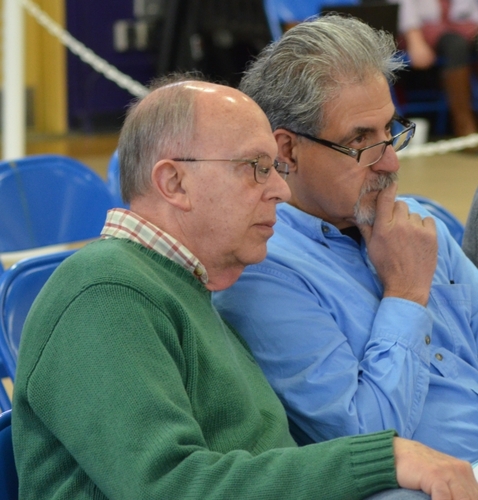BRATTLEBORO — Ronald James “Ron” Read of Brattleboro was a simple man who lead a quiet life.
Read died in June 2014 at the age of 92, but his memory will live on for years to come, thanks to an extraordinary gift.
Last week, the Brooks Memorial Library learned it would received a bequest of more than $1.2 million from Read's estate for the library's current endowment fund.
“It was an amazing surprise,” said Library Director Jerry Carbone. “We're pretty sure that this is the largest bequest made to the library since the one made by George J. Brooks in 1886 that started it all.”
Read was a graduate of Brattleboro High School, Class of 1940, the first member of his family to earn a high school diploma. After graduation, he worked as a mechanic at his brother Frank's garage, Haviland's Service Station on High Street.
He served in the Army as a military policeman in World War II, mostly in the European Theater, with a quick stop in Okinawa just after the Japanese surrrender in August 1945.
He returned to Brattleboro on Christmas Day, 1945, and went back to work at Haviland's. He retired in 1979, after his brother sold the garage.
Restless in retirement, he later went back to work in 1980 as a part-time janitor at the former JC Penney store on Putney Road until his second retirement in 1987.
He loved chopping wood, puttering around the house, collecting stamps and coins and, in his later years, regularly visiting the Brooks Memorial Library.
Carbone called Read a “self-made man who knew how this institution can change people's lives. It was his gift to the community.”
He also said that Read was “a shrewd investor who did quite well with his money.”
Jerry Goldberg, president of the library board of trustees, said Read “was just a guy who knew how to buy stock. He picked companies that were good and solid and held onto them.”
The list of investments from his estate was three pages long, Goldberg said, and his portfolio was conservative, but profitable.
Carbone said the bequest was “transformative” and that it will “help guarantee the future viability and sustainability of the library.”
Years of level-funding by the town, combined with ever-increasing operating costs, has squeezed the library's operations.
In 2011, the library cut back its operating hours from 56 hours a week to 50 hours a week, and eliminated 24 part-time hours.
Carbone said the first thing the money will be used for is restoring staffing and hours to pre-2011 levels.
“People have been asking for extended hours for over three years now,” said Carbone.
Also on the wish list is dealing with what Carbone called “many deferred capital needs.”
This includes technology upgrades, reconfiguring library space to accommodate more computer stations, as well as more books, and generally sprucing up the library.
Expanding the collection and funding special programming and events at the library are also priorities.
Carbone said the Read bequest doesn't mean that the library will be less dependent on town funds to operate.
“From the very beginning, when George Brooks made his first bequest, he envisioned a public library supported by the community as a community resource. We still need all types of support - including taxpayer funding and the private fundraising that the Friends of the Library does - to maintain the quality of our collections and programs.”
The quality of the library's offerings was something Read appreciated, Goldberg said.
“He felt it was a worthwhile place, as being a social service for everyone in the community. It's good to know that so many people agree, and realize the value that a strong library brings to a town.”
